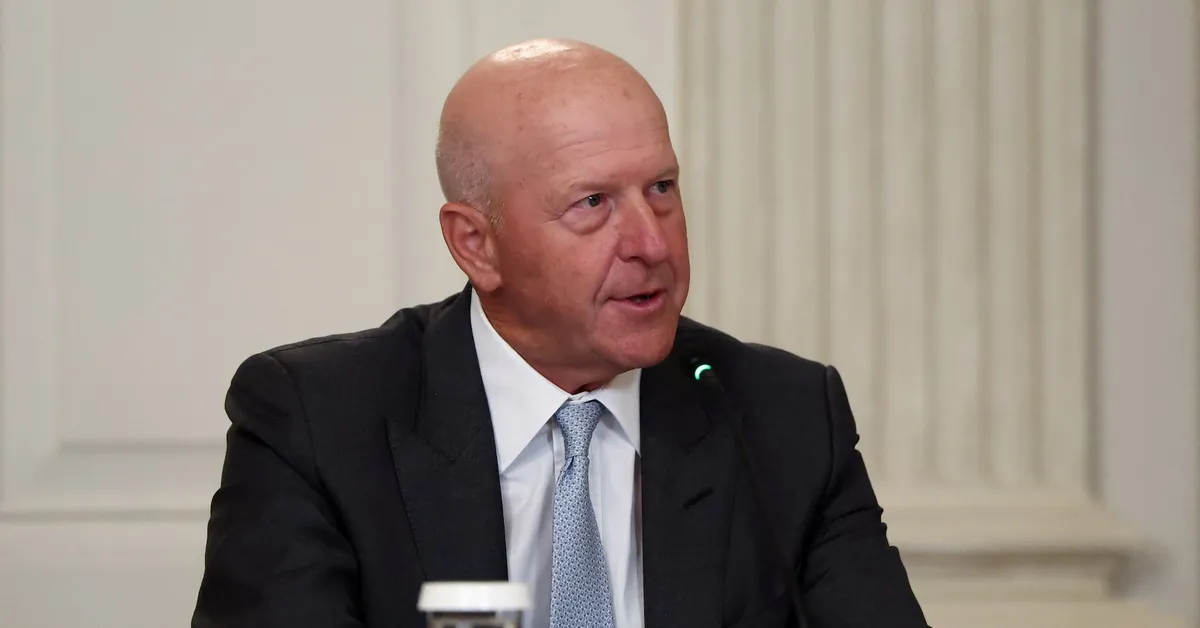
In a recent social media statement, former President Donald Trump highlighted the impact of his tariffs, asserting that foreign companies and governments are predominantly absorbing the financial burden. However, he criticized David Solomon and Goldman Sachs for failing to acknowledge the positive effects of these tariffs on the economy. Trump implied that Solomon should perhaps reconsider his role as the CEO of a major financial institution and instead focus on his past hobby as a DJ, which he abandoned years ago.
Goldman Sachs has not publicly responded to Trump's remarks, and a spokesperson for the White House has yet to comment on the situation. Since the initiation of trade wars on February 1, when Trump imposed tariffs on imports from Mexico, Canada, and China, a significant number of companies—at least 333 globally—have reacted to these tariffs in various ways, as noted by a Reuters tracker.
While Trump did not specify the Goldman Sachs report he was referencing, it is well-known that the Wall Street bank has adopted a bearish stance regarding Trump's tariffs. In a recent analysis led by chief economist Jan Hatzius, Goldman Sachs indicated that U.S. consumers have absorbed approximately 22% of the tariff costs as of June. This figure could escalate to 67% if the current trajectory of tariffs continues, raising concerns about consumer spending and the overall economy.
In response to this situation, Trump suggested that Solomon should “go out and get himself a new economist.” Hatzius, however, declined to comment on the exchange. Earlier this year, Goldman Sachs warned that the sweeping tariffs imposed by the U.S. could negatively affect global growth and lead the Federal Reserve to implement more aggressive interest rate cuts than previously anticipated.
Tariffs are essentially taxes imposed on imported goods, primarily aimed at protecting domestic industries or influencing trade policies. The financial implications of these tariffs can vary, as costs are often distributed among manufacturers, retailers, and consumers, which depend on market conditions and supply chain dynamics.
As the second-quarter earnings season unfolds, companies have reported substantial financial impacts due to Trump’s tariffs, with estimates ranging from $13.6 billion to $15.2 billion in losses for the period between July 16 and August 8, according to Reuters' global tariff tracker. Despite Trump's efforts to reshape global trade dynamics, U.S. stock markets have continued to soar, driven by optimism surrounding artificial intelligence and expectations that the Federal Reserve will reduce borrowing costs.
The topic of tariffs remains contentious within the corporate world. A senior investment strategist at JPMorgan Asset Management admitted to tempering his public comments on U.S. tariffs, concerned about the potential repercussions on his colleagues and the broader Wall Street environment. Various companies have faced scrutiny regarding their positions on tariffs, with the White House accusing Amazon in April of politically motivated actions related to its pricing strategy in light of new tariffs—an initiative the company later clarified was never implemented.
Trump also suggested that Walmart should absorb the costs of tariffs rather than passing them on to consumers. In light of these discussions, David Wagner, head of equities at Aptus Capital Advisors, commented that the president's opinions on financial institutions like Goldman Sachs or Bank of America should not significantly influence investment decisions. He further noted that the complexity of economic data can lead to divergent perspectives on consumer health.
Reporting by Manya Saini and Niket Nishant from Bengaluru, along with Tatiana Bautzer and Saeed Azhar from New York, sheds light on the evolving landscape of U.S. trade policy and its implications for major financial entities. As the situation continues to develop, the ramifications of Trump's tariffs will likely remain a focal point for investors and policymakers alike.